These photographs were taken yesterday on Midsummer's Eve in Espoo, at lake Pitkäjärvi, watching a bonfire being set up. This has become a tradition. The weather was great, much better than last year. The children enjoyed themselves, and even the mosquitoes didn't matter much.
Five years ago I made a photo book about midsummer, available at Scribd and Blurb.
(Posting title is from the poem The Chichimecas by Richard Garcia.)
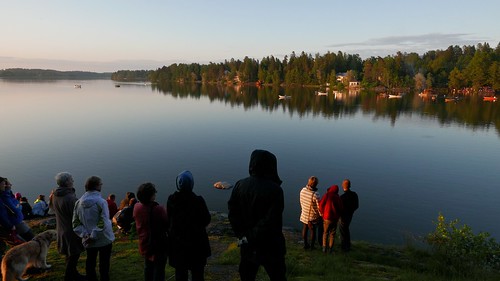
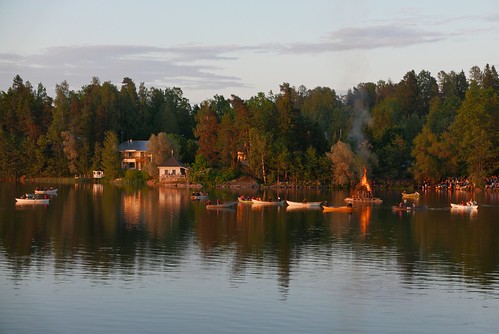


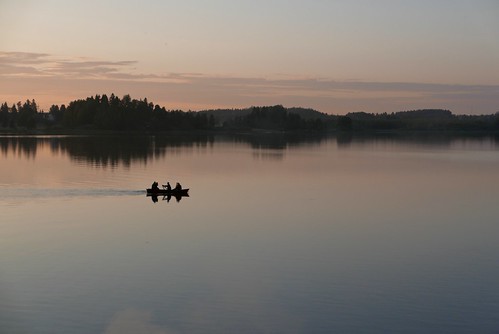
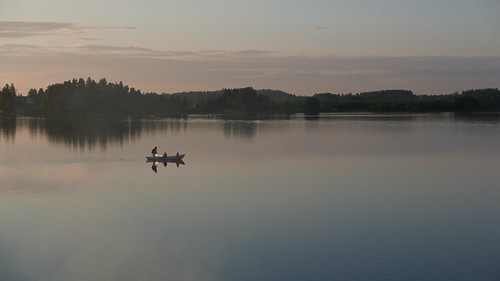
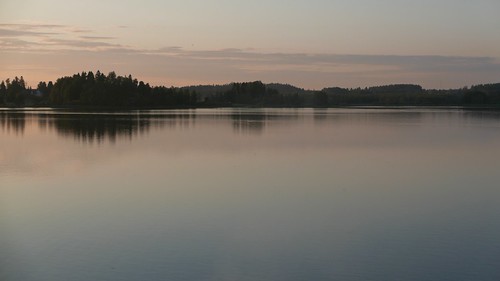



4 comments:
..how very beautiful!.. and once again, impossible to pick a favorite, but.. I do go weak in the knees looking at those flower photographs.. and the wet series; -wonderful close -ups.. and love all moss.. great visual tour everywhere..
and it was pointed out to me yesterday by Anne, that I was pricing & merchandising licorice made in guess where?:
vaajakoski, finland.
So we have some Finnish candy in our little town in pleasanton, California:
Pandalicorice.com
And I am increasingly intrigued by this Finnish pattern I see of the double vowels and double constanants
VAAjakoski
sipOOn..
kUUsi..
PetiKKo..
hAAtaja..
explanAAtion? -what is the story on thAAt?
bleSSings! your fan, ~sAAndra..
Panda is one of the most known trademarks to Finns. Another such one is Karl Fazer Milk Chocolate, which has been valued as Finland’s top-rated brand in several national studies. And then we have Fiskars (scissors, garden tools etc.) and Kone (elevators). Nokia mobile phones were a well-know Finnish product, but they got sold to Microsoft and are doing rather badly.
Wikipedia offers an explanation about the double wovels in the Finnish language. The short explanation is that Finnish is pronounced as it is written, and a double wovel means it is longer when pronounced, changing the meaning of the word.
Below is a quote from Wikipedia:
All phonemes can occur doubled phonemically as a phonetic increase in length. Consonant doubling always occurs at the boundary of a syllable in accordance with the rules of Finnish syllable structure.
Some example sets of words:
tuli = fire, tuuli = wind, tulli = customs
muta = mud, muuta = other (partitive sg.), mutta = but, muuttaa = to change or to move
1. LOVE the photographs; as always.. and we are experiencing a drought here, so my eyes really appreciate all the gorgeous green... 2. Fiskars! -big fan of all things Fiskars, without realizing home of origin.. I spent a few years in the arts/crafts industry.. In fact, innovating the worlds first 'create-your-own' magnetic home decor frames: MagTimeFrames.com.. /sad to share I did not receive patent and ended in a bankruptcy, but still.. Fiskars was especially good to me and having lots of hands on experiences with a variety of arts/crafts tools.. I can testify to the high quality.. and highly recommend..
and, "thank you!" for the information regarding the double consonant/vowel pattern.. so, it must be that they are all pronounced quite different; if I was hearing vs. reading..
it is one of the many strange things to me, in the English language, that:
if a person is talking.. if it is via a conversation... then everyone is presumed to understand meaning by context for words like, -there. they're, their..
but if you read or right them.. it seems presumed the only way you can understand is with the assistance of different spellings..
its in my files under... how does this make any cents?
have a blessed week!
Well, we have had plenty of rain, and more is predicted in the weather forecast, no danger of draught. And even though the summer has been somewhat cold, nature is coping rather well. We are getting a record amount of blueberries in the forests if things continue the same way.
Post a Comment